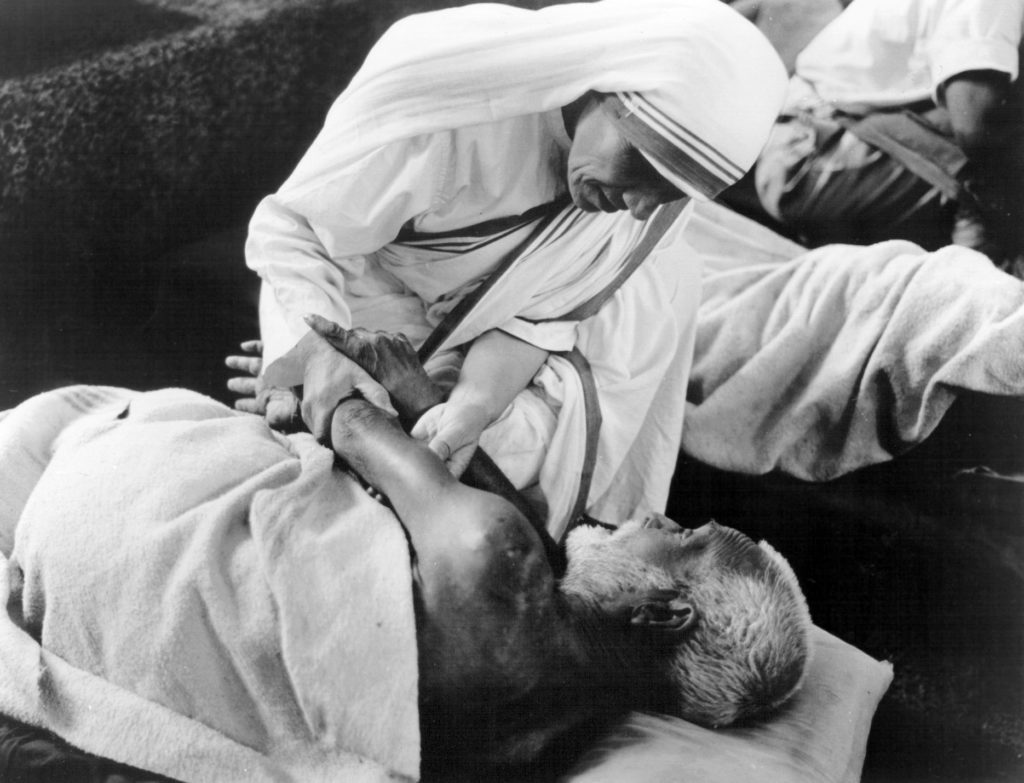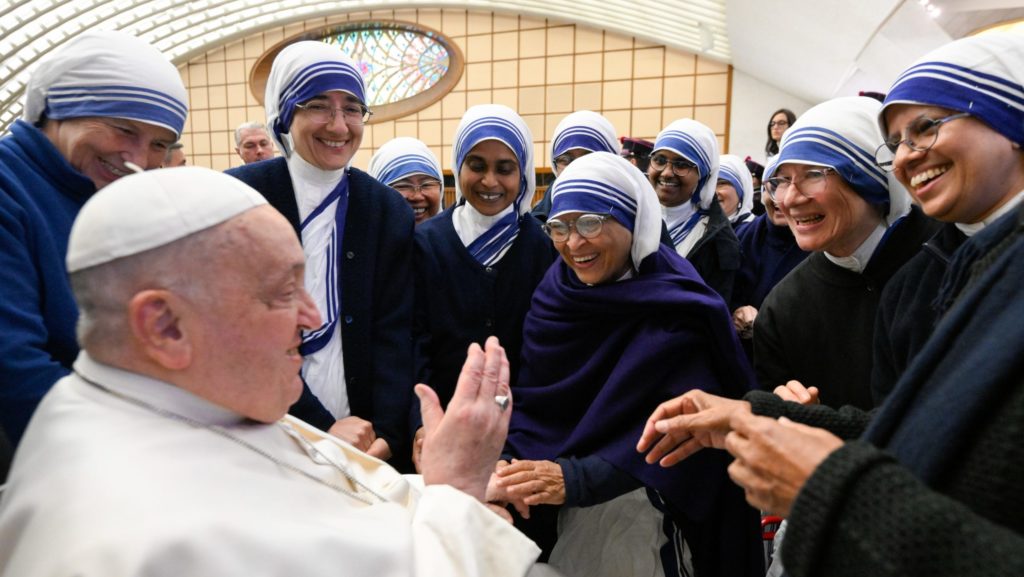The leader of the nation's Catholic bishops has commended Pope Francis' move to extend to the universal Catholic Church the feast of a beloved saint and "contemporary witness" of faith.
On Feb. 11, the Vatican's Dicastery for Divine Worship and the Discipline of the Sacraments published a decree announcing that the feast day of St. Teresa of Kolkata has been added to the General Roman Calendar, with her optional memorial to be celebrated by the church each year on Sept. 5.
Previously, the observance was limited to the liturgical calendars for the Missionaries of Charity and Catholics in India.
In a statement released Feb. 11, Archbishop Timothy P. Broglio, president of the U.S. Conference of Catholic Bishops, said the inclusion of St. Teresa of Kolkata in the General Roman Calendar was "an occasion of joy for all Catholics and for our entire nation, whose elected officials proclaimed her an honorary citizen in 1996."
The statement noted that during their November 2023 plenary meeting, the U.S. bishops had "expressed broad support" for adding her feast to the General Roman Calendar.
The founder of the Missionaries of Charity religious congregation, St. Teresa -- who died in 1997 and who was canonized in 2016 by Pope Francis -- dedicated the better part of her life to serving the most destitute of India, particularly in the city of Kolkata (formerly spelled "Calcutta"). Her work drew international attention, and she was awarded the Nobel Peace Prize in 1979.

"Care for the poor and the suffering is at the heart of the mission that Christ gave the Church," said Archbishop Broglio, who heads the U.S. Archdiocese for the Military Services. "Today, the Holy See announced that Pope Francis has raised up a contemporary witness of that care."
He noted in his statement that "the impact of St. Teresa's words and deeds upon Catholics and non-Catholics has been profound, and the good and generous work carried out by her Missionaries of Charity is a testimony to her enduring importance in the life of the Church and the world.
"Especially timely is her witness of love for the poorest among us," added Archbishop Broglio.
The archbishop also quoted then-Mother Teresa's address during the 1994 National Prayer Breakfast, urging all to "listen anew to the words she spoke to our nation: … 'Love, to be true, has to hurt. I must be willing to give whatever it takes not to harm other people and, in fact, to do good to them. This requires that I be willing to give until it hurts. Otherwise, there is not true love in me, and I bring injustice, not peace, to those around me.'"
The General Roman Calendar, according to which the church's liturgical year is ordered, includes the full cycle of celebrations for the mystery of salvation, along with the feasts of saints. Celebrations are ranked as Sundays, solemnities, feasts or memorials, with memorials either obligatory or optional. First promulgated in 1969 by St. Paul VI, the calendar has since been amended by the Holy See to include new celebrations.
The General Roman Calendar is also complemented by what are called the Proper Calendars for a given conference of bishops. Religious orders can have complementary calendars that include feasts for their founders and order saints.
The Vatican decreed that Gospel reading for St. Teresa of Kolkata's feast is taken from the 25th chapter of St. Matthew, which lists works of mercy such as feeding the hungry, visiting prisoners and welcoming strangers.
Cardinal Arthur Roche, prefect of the Dicastery for Divine Worship and the Discipline of the Sacraments, noted in the Feb. 11 decree announcement that the passage also "contains the following words brought wonderfully to life in Mother Teresa: 'Whatever you have done to the very least of my brothers and sisters you have done also to me.'"

